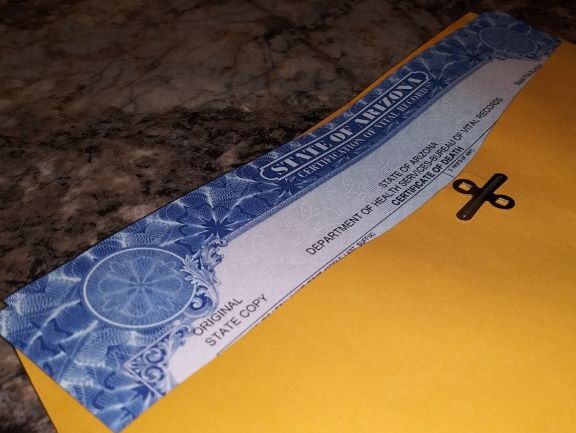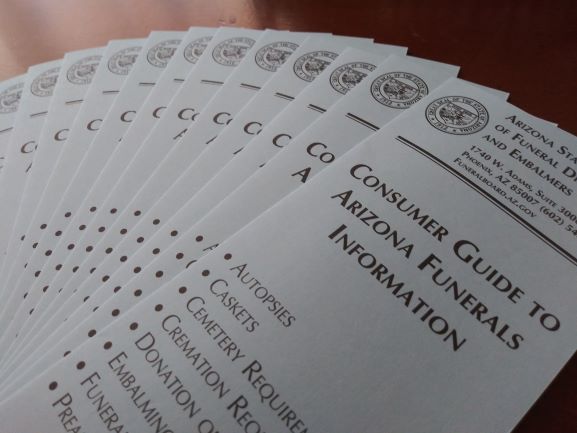How many death certificates do I really need?
The death certificate provides pertinent identifying information about a deceased individual including their certified time, place, and cause of death. Most often, the death certificate serves as proof for legal purposes. These purposes range from estate settlement after death too if a widow wishes to remarry.
It is the decedent’s assets that will determine the number of death certificates that will be needed. An average of 6 to 10 death certificates could be needed, with most emphasis on 10, according to web sources. At Bradbury Memorial Center, we simply pass along the state’s death certificate costs, which are $20/each.
Typically, when a death record has been completed and filed, the death certificates can be ordered. On average, the death certificates can arrive within 6 to 10 days after ordering. However, in some counties, the process can take as long as a month. Notably, the death record/death certificate process overall can be delayed for cases pending autopsy results, toxicology results, or anything else required to determine an individual’s cause of death.
A death certificate will be required to access a deceased person’s bank account. Unless you are the other person named on a joint account, it is illegal to withdraw money from an open bank account of someone who has died before the next of kin notifies the bank of the death and has been granted probate. This is the case even if there is a need to access the bank account to pay for the funeral or funeral home services.
Accounts types that usually require a death certificate:
Property/land transfers, or property tax payments
Real estate (if it is held in survivorship, in a trust, or with a transfer-on-death designation)
Vehicles such as cars, trucks, boats, motorhomes, etc.
Anything else with titles or deeds
Bank Accounts
Safety deposit boxes
Credit card accounts
Death benefits from employers, pension programs, social security, etc.
U.S. military veterans’ survivor benefits
Insurance policies
Life insurance
Preneed insurance
AD&D Insurance – Accidental Death and Dismemberment Insurance
Home and automobile insurance
Probate/Wills/Trusts
Lawyers
Stocks/Bonds
Mutual funds
ETFs – exchange-traded funds
Savings bonds
Annuities
IRAs – Individual Retirement Account
401(k)s and employer death benefits
The legalities involved:
(According to Arizona Administrative Code R9-19-314 and R9-19-315)
Arizona is a “closed record” state. This means vital records, such as the death certificate, are not public records. The confidentiality of citizens is protected under Arizona law and its restrictions on the public’s access to vital records. A person must be 18 years of age or older and an eligible recipient, to obtain a certified copy of a death certificate. A certified copy of a death certificate issued by Vital Records will have a raised seal, will show the signature of the local Registrar, and will be printed on security paper.
Eligible recipients include a funeral director representing final disposition; next of kin including a surviving spouse, parent or grandparent, adult child, grandchild, or sibling; or another person deemed responsible for final disposition of the deceased; or a person with Power of Attorney for the decedent (granted the POA agreement specifies “through final disposition”).
This also includes executors, beneficiaries, a person named in a court order, a person authorized by an eligible person, insurance companies or financial institutions, hospitals, healthcare institutions, a person with a court order having a claim against the deceased individual’s estate, an attorney representing an eligible person, a consulate or foreign government by request and government agency by request.
Funeral directors responsible for the final disposition of the deceased person in question are eligible to order death certificates for one year following an individual’s death. In Arizona, eligible persons may order online directly from the Arizona Department of Health Services.
In Mohave County, death certificates also may be ordered by eligible persons from the county’s Department of Public Health.
Processing and postage fees do apply and are set by each of those entities. Please visit each of those department’s websites for further information.









